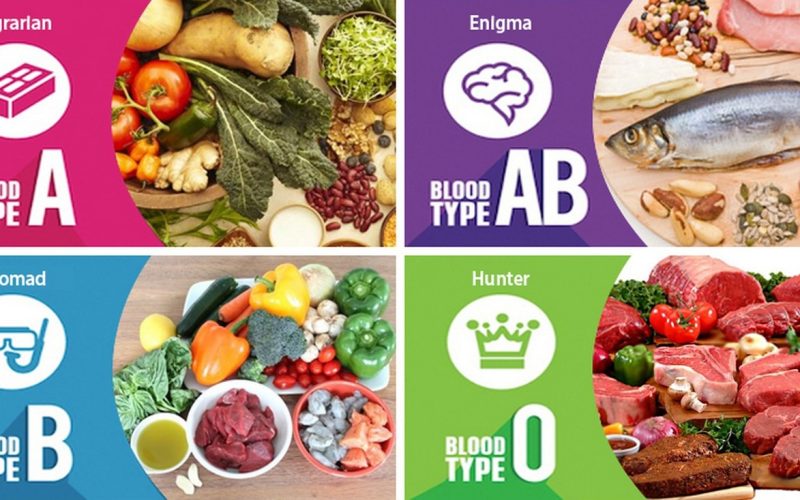Have you heard about the blood type diet? You’re about to find out what it holds for the B blood type. Let’s talk about the B blood type diet.
What makes me a different person from you?
This question is one that has been at the heart of what we know as the genetic puzzle. It is also a question that is key to our exploration of blood types.
The answer is genetic heritage – the storyline of your life. This means that even though you currently exist in the 21st century, pieces of you have existed long before now, as you share a common bond with your forefathers.
The genetic information that made up their particular characteristics has been transferred down to you and will be transferred to future generations.
Individuals who are of the B blood type possess a completely different set of features than those who are of the Type O or Type A. The blood type B people are susceptible to a wide range of diseases, they are meant to eat different foods and workout in a totally different manner.
There are people who believe that there is a possibility that personalities are influenced by blood type!
The blood type diet was introduced by Dr D’Adamo . He is the author of the bestselling books tilted Live Right for Your Type and Eats Right for your Type, and he provides us with a blueprint for how to live according to our blood types in his books. As you read on, you’ll learn more about the blood Type B person.
The Blood Type B Individualized Lifestyle
The mechanics of our blood type’s influence simply has to do with the manner in which the genes influence each other, seemingly unrelated, genes that are located nearby, or immediately adjacent.
With this mechanism, you get to understand why it is possible for your blood type to have an impact on such a vast number of bodily systems – from neurochemicals to digestive enzymes. It is no surprise that many nutrition experts are puzzled when they first hear or read about the connection between digestion and blood type.
That is because these nutritionists only pay attention to the physical value of blood type as a surface antigen.
In reality, it is not your blood type antigen that has an influence on the level of acid present in your stomach, but instead, the gene for your blood type having an influence on other seemingly unrelated genes that are located very close or immediately adjacent to the ABO blood type gene that can have an influence on your stomach acid levels.
While this phenomenon, identified as gene linkage, is yet to be well understood, it has become well known: Many genes can have an influence on the actions of other genes that are seemingly unrelated.
As you read further about the blood group diet and Blood Type B, you will learn a lot more about this relationship.
B Is for Balance – B Blood Type History
The B blood type developed from the area of the Himalayan highlands, which is now a part of today’s India and Pakistan.
The blood type B, which was Pushed from the hot, lush savannahs of the eastern part of Africa up to the chilly highlands of the Himalayan Mountains, is believed to have initially mutated as a response to climatic changes.
This blood type first appeared in India or in the Ural region of Asia amongst some people of a mixed Caucasian and Mongolian tribes.
This B blood type soon became characteristic of the wonderful tribes of the steppe dwellers, who already dominated the Eurasian Plains at this time.
As the Mongolian people swept through the continent of Asia, the gene for the type B blood became more prominent.
The people of Mongolia travelled and spread towards the north, growing a culture highly dependent on domesticating and herding animals – as was reflected in their cultural diet of meat and cultured dairy products.
Of all the ABO blood types, Only type B shows a clearly marked geographic distribution. With a stretching dominance as a bold belt across the plains of Eurasia and all the way down to the Indian subcontinent, the type B blood is found in an increasing number from Mongolia, Japan, China and India all the way to the Ural Mountains.
From the Ural mountains westward, the percentages of dominance fall gradually until it reaches a low at the western tip of Europe.
There is a small number of people with the type b blood group in western Europe, and these people are a reflection of the migration done by the Asian nomadic peoples.
The increase in the number of people with this unique blood type can be found in the western parts of Europe, Australia, and Germany especially as they have a more prevalent presence of individuals with the type B blood than their western neighbours do.
The modern subcontinental Indians who are Caucasian people poses one of the highest frequencies of individuals with the type B blood in the globe. People in Northern China and Northern Korea have a lower number of people with the type A blood, and a higher number of people the type B blood.
What Makes People With The Type B Unique
As a person with the Type B blood, you have the genetic potential to have great malleability as well as the ability to thrive in dynamic conditions.
Unlike the A and O blood types, are both located at the opposite ends of every spectrum, the position of a person with the B blood type is fluid, instead of stationary, with an ability to be mobile in any direction along the continuum.
This makes it easy for you to see just how this flexibility was useful to the early people with the Type B blood who required a balance between the twin forces of the vegetable and animal kingdoms.
Regardless of this advantage, it can be very challenging to get a balance between the two poles and Type people with type B blood tend to have a high sensitivity to the possible effects of slipping off balance.
The basic challenges that can possibly get in the way of the best possible health for a Type B person includes a tendency to produce a cortisol level that is higher than normal in a situation of stress; sensitivity to the lectins that is B specific in particular foods, which results in a greater risk for developing Syndrome X and inflammation; susceptibility to viruses that are slow-growing and lingering – such as the ones for CFS, MS and lupus; and also a strong vulnerability to autoimmune diseases.
Dr. D’Adamo, “If I were to generalize, I would say that a healthy Type B person, living right and eat according to his or her own blood type, should stand a fewer risk factors for disease and conditions, they tend to be more mentally balanced and physically fit than people with any of the other types of blood.”
Type B blood people stand a greater chance to adapt to altitude. And more interesting is the fact that they are statistically the tallest of all the blood types.
Type B Diet
For people with type B blood, they have the biggest risk of weight gain when they eat corn, buckwheat, wheat, lentils, tomatoes, sesame seeds and peanuts.
Each of these different foods has a direct effect on the efficiency of a person’s metabolic process, and it results in fluid retention, fatigue, and even hypoglycemia – a drop in your blood sugar level after eating a meal.
When you stop eating these kinds of food and start eating a diet that is perfect for your blood type, you can expect your blood sugar levels to remain stable after meals. Another food that is very common but must be avoided by people with type B blood is chicken.
Chicken has a Blood Type B agglutinating lectin contained in its muscle tissue and that makes it unfit for blood type B people.
Even though chicken is lean meat, the problem it has is that it poses the power of an agglutinating lectin which can attack your bloodstream and it can potentially lead to problems like strokes and immune disorders.
Dr D’Adamo has suggested that you avoid eating chicken and opt for options that are of higher beneficial value such as goat, mutton, lamb, rabbit and venison. The other food options that encourage weight loss in the B blood type diet are green vegetables, beneficial meats, eggs, and low-fat dairy.
When a B blood type person successfully gets rid of toxic foods from your diet, and replace them with more beneficial food options, these persons are very successful in losing and controlling their weight.
Handling Stress
When we talk about hormones, type B blood type is a lot closer to type A, as they produce a somewhat higher cortisol level.
When a B blood type person is out of balance, it will manifest in an overreaction to stress, disrupted sleep patterns, difficulty in recovering from stressful situations, disruptive to GI friendly bacteria, daytime brain fog, and suppresses immune function.
This imbalance will lead to an increased risk for insulin resistance, depression, hypothyroidism and high-stress levels can further worsen virtually all health challenges.
The Nitric Oxide (NO) molecule also holds some implications for people with the Blood Type B’s stress response and ability to recover quickly from stress.
NO has emerged as an essential substance that is capable of modifying various biological processes – and this includes the immune system and the nervous system. Nitric Oxide functions as a kind of mediator of certain types of neurons in the central nervous system.
Unlike a couple of other neuro-transmitters, like serotonin and dopamine, NO is different because it does not bind to particular sites on the cell, but is rather gets infused into the cells and functions directly at the biochemical level, which makes it a “rapid response” neurotransmitter.
Something else to note about NO is that it also seems to play a roll in the regulation of the endorphins that are produced in a person’s brain. The ability to clear NO rapidly can be greatly useful to the cardiovascular system.
However, it has some implications for the activity of the neurotransmitters, and it enables faster recovery of stress. It was discovered by scientists that patients who have the Type B antigen had the ability to clear NO more quickly than humans with other blood types.
While scientists had and still have no clue as to the reason why this might be, one of the possible explanations lies very close to the ABO gene because the gene that has an influence on the ability to modulate the conversion of Arginine to NO is side by side the gene that codes for all blood types.
Do you recall the gene linkage that we discussed earlier in this article? Does what we just discussed sound familiar? According to Dr D’Adamo, he observed that people with blood type B poses a unique gift that lets them gain fast physiological relief from tiredness and stress, and also maintain emotional balance via the use of basic mental processes like meditation and visualization.
Exercise
In other for the mind/body balance that is specific to Type B’s to be maintained, Dr D’Adamo points out that you opt for physical exercise that challenges your body as well as your mind.
People with type B blood will need to get a balance between meditative activities with some more intense physical exercise.
Dr D’Adamo says type B people tend to do best with daily activities that are not so intense aerobically, involve other people, or even have an element of mental challenge.
The greatest forms of exercise for people with the type B blood include martial arts, tennis, cycling, golf and hiking.
The Personality Connection
There is a connection between personality and blood type, and it has long been studied for a while.
Dr D’Adamo conducted an independent study, and he found out that most people with the Blood Type B often talk about themselves with words that are related to characteristics such as: easygoing, subjective, creative, flexible, and original.
When it comes to the B blood type diet, there isn’t too much to put into consideration. The B blood type diet only requires people who follow it to avoid the following:
- Buckwheat
- Corn
- Wheat
- Lentils
- Tomatoes
- Chicken
All other meats and vegetable are great because the B blood type diet allows for the consumption of almost every regular food.
As with other diets and exercise, make sure you talk to your doctor first before adopting the B blood type diet. Also remember that there is no scientific backing to support the efficacy of the blood type diet.
We will love to hear from you, please leave a comment below.








